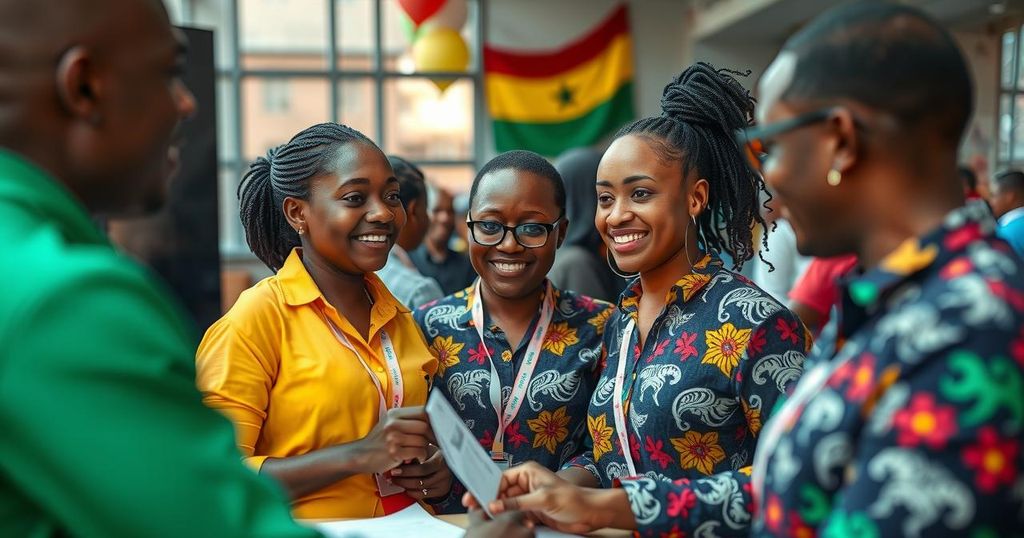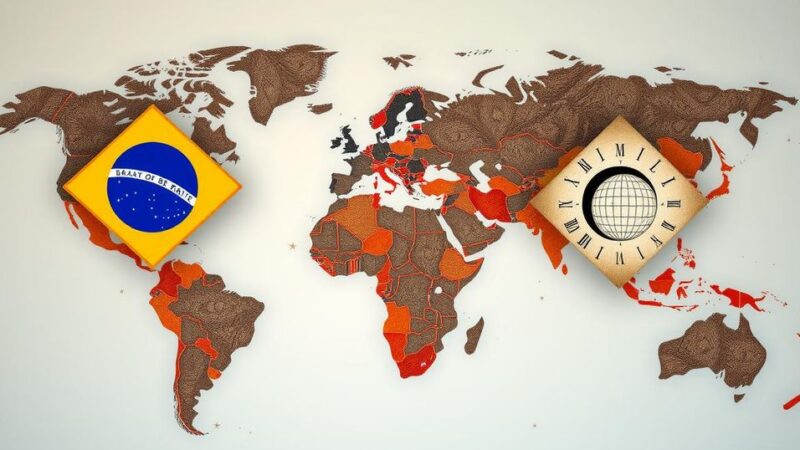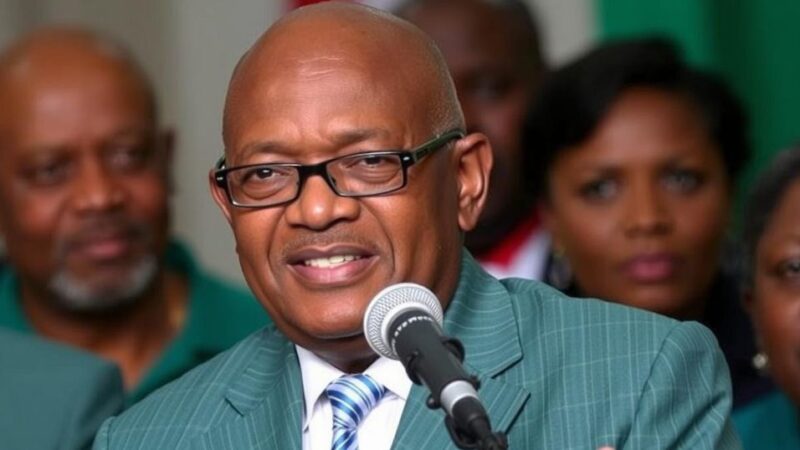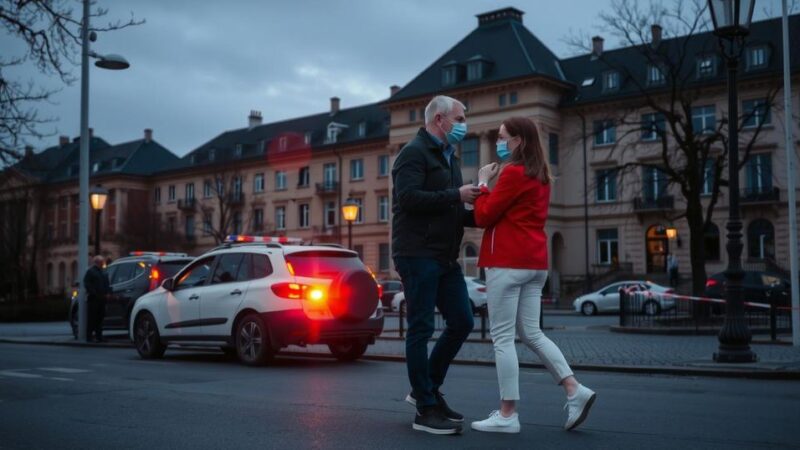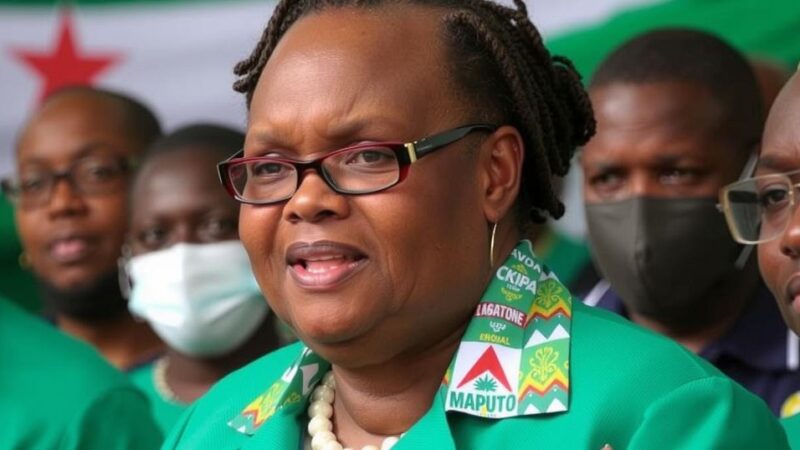Ghanaians will vote on Saturday in a significant presidential election between Mahamudu Bawumia of the NPP and John Mahama of the NDC. Economic hardship influences the electoral landscape, marked by soaring inflation and high unemployment. The candidates present contrasting visions, with Bawumia aiming to stabilize the economy and Mahama promising a governance reset. Over half of the 34 million citizens are registered to vote, highlighting the election’s importance in shaping Ghana’s future.
On Saturday, Ghanaians will cast their votes in a critical presidential election amid pressing economic challenges. Twelve candidates are competing, with the primary contenders being Mahamudu Bawumia from the ruling New Patriotic Party (NPP) and John Mahama from the opposition National Democratic Congress (NDC). Public sentiment appears divided between these two leaders, who represent the principal political factions in Ghana.
The current economic climate, marked by soaring inflation—over 54% year-on-year—and rampant youth unemployment, will heavily influence voter decisions. As reported by the Ghana Statistical Service, over 1.3 million young adults are unemployed, with the economy having been significantly affected by the COVID-19 pandemic, causing increases in poverty levels since 2020. Economist Godfred Bokpin highlighted that the economy is a primary concern for the electorate.
Bawumia, who has faced scrutiny for economic issues during his tenure as vice president, has attempted to distance himself from the economic downturn, stating his role was primarily advisory. His opponent, Mahama, who served one term previously, aims to capitalize on the current government’s economic struggles, promising a reset towards efficient governance and accountability. He has vowed to reduce taxes and combat illegal mining if elected.
The forthcoming election is vital, as more than half of the approximately 34 million Ghanaians are registered voters, eager for transformational change. The election will also encompass parliamentary votes, with candidates needing to secure over 50% of the votes to avoid a runoff. Political analysts expect intense competition between the frontrunners, with hopes for a peaceful transition of power in line with Ghana’s democratic credentials.
The context of the election is steeped in economic distress. Ghana is currently experiencing its worst economic conditions in decades, exacerbated by high inflation and escalating living costs. Policymaking amidst such adversities has fashioned the political landscape, with voters prioritizing candidates who promise corrective measures to restore economic stability. The experience of both leading candidates—Bawumia as the economic manager and Mahama as a past president—further enrich the narrative of competing policies and visions for the nation’s future.
In summary, the upcoming elections in Ghana reflect a critical juncture in the nation’s political and economic landscape. With significant challenges stemming from economic mismanagement, the electorate’s choice is poised to have profound implications on governance and national recovery. The competition between Bawumia and Mahama will decide not only the presidency but also the direction of Ghana’s economic policy in the years to come, emphasizing the importance of voter engagement and democratic integrity.
Original Source: www.cnn.com

